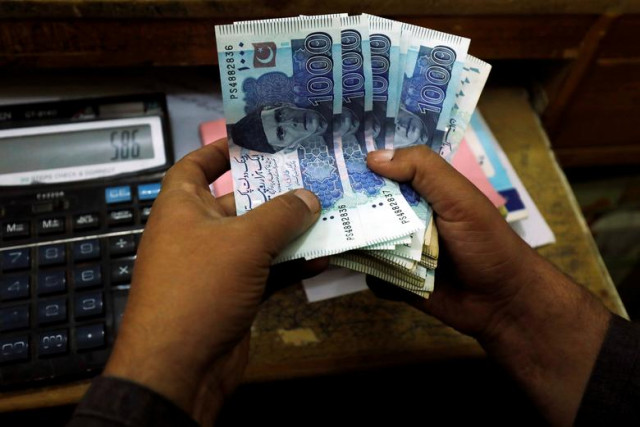Businessmen decry rupee devaluation
Demand urgent remedy as discontent prevails in business, industry circles

The Pakistan Businesses Forum (PBF) on Saturday decried that despite the resumption of the International Monetary Fund (IMF) programme, the country’s currency continues to experience its worst slump as the rupee has cumulatively fallen from Rs213 to Rs237 against the greenback since Sept 2.
The situation demands urgent attention as there is a dire need to stabilise the rupee by ending market speculation through the State Bank of Pakistan (SBP), added PBF officials. “The finance minister will have to announce a clear policy on restoration of the rupee as there prevails a sense of disappointment in the circle of trade and industry,” said PBF CEO Ahmad Jawad.
“Traders and industrialists are in immense pain as there is no sign of easing the high inflation, loss in employment and lower profitability, despite revival of the IMF programme,” he added. Besides, the government has withdrawn the electricity concession earlier given to exporters while an increase of Rs50 per litre levy on petrol and diesel is expected by January 2023, Jawad said, adding that the government may also impose GST, both of which are not good indicators for the country’s already gloomy economy. Due to IMF conditions, the dollar rate is supposed to be determined by market forces, said Saqib Hussain, Senior Equity Analyst at Alpha Capital.
“The government cannot intervene to stop rupee depreciation and the currency is under pressure again. The gap between the interbank and open market is expanding and the pressure is building. Confidence is eroding,” he remarked. “The real issue is weak economic fundamentals and political uncertainty. The rupee will strengthen once certainty returns to the political environment,” explained Hussain. Bond and currency markets, which had shown more confidence in Pakistan after the IMF deal, have hiked their pricing one again over speculations that that country is at risk of defaulting on its foreign debt, highlighted Jawad.
Since the end of August, the yields on some of the government’s international bonds have jumped by a third, while the currency is one of the worst performing in Asia. Tax revenues, industrial production, and other targets set by the government have been shredded while “all the figures have gone haywire—uncontrollable”, he observed. Amidst all adversities and uncertainties, PBF believes that the real effective exchange rate (REER) of the dollar against the rupee is less than Rs200 for a dollar, and for all practical reasons, the current depreciation cycle is the direct result of speculative trading, lack of regulatory oversight and mismanagement of the forex market.
Similarly, in this prevailing catastrophic setback confronting the country, it is required that open market players support the government, Jawad suggested. Attributing the dollar’s upward trend to the smuggling of foreign currency out of the country, Jawad questioned why suddenly the dollar went up again without any logical reason. If one says that it is due to floods then it will be over exaggerating, he emphasised. On the other hand, Afghanistan’s goods traders are cashing in on the situation and making heavy imports through Pakistan to meet their local demand.
Because they are buying US dollars from Pakistani markets to make import payments, he cautioned. In addition to this, Hawala operators have reorganised their network in foreign countries, slowing down the flow of worker remittances through banking channels. “We have no choice left than to let the currency free float because it is one of the main conditions set by the IMF for revival of the programme,” said Head of Research Economist Mustafa Mustansir.
Also, the level of SBP foreign exchange (FX) reserves is so low that it cannot hold the rupee at a certain level for very long, he added. “As far as entering into myriad of problems and economic collapse is concerned, we are very much in that situation already,” said the analyst.


















COMMENTS
Comments are moderated and generally will be posted if they are on-topic and not abusive.
For more information, please see our Comments FAQ